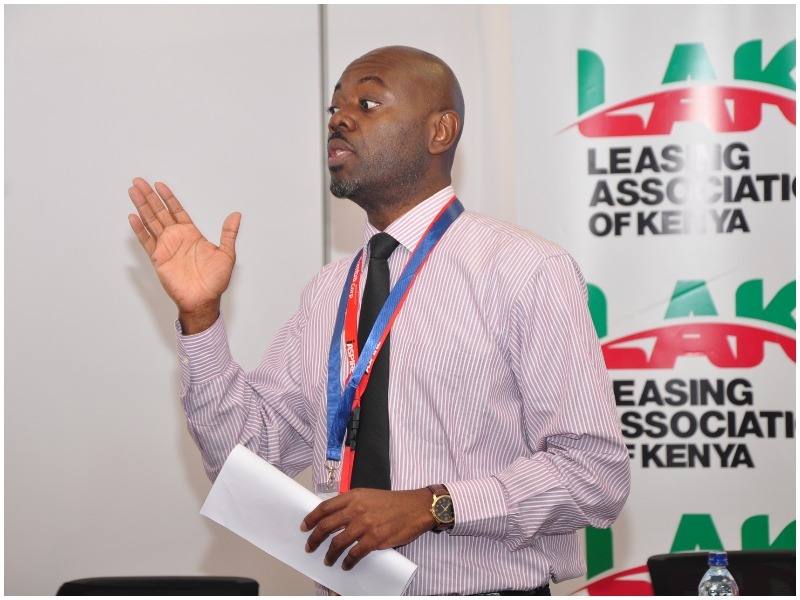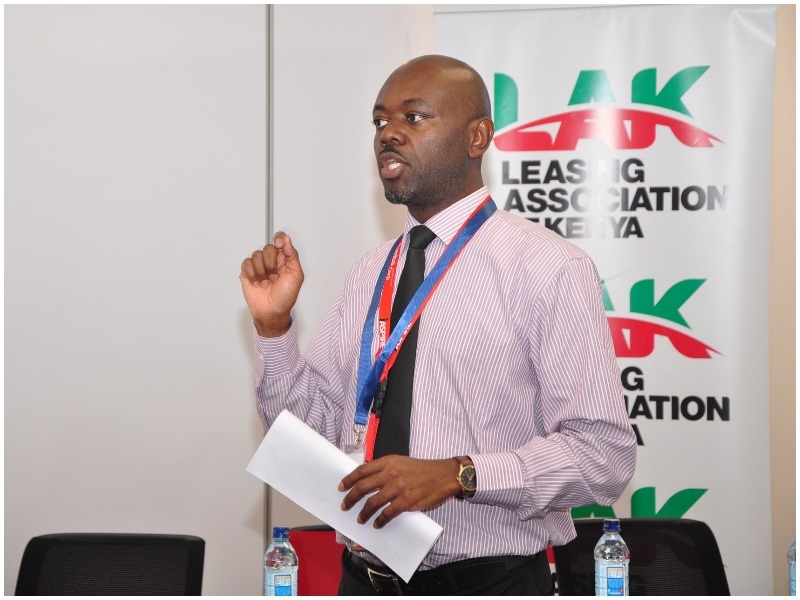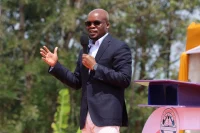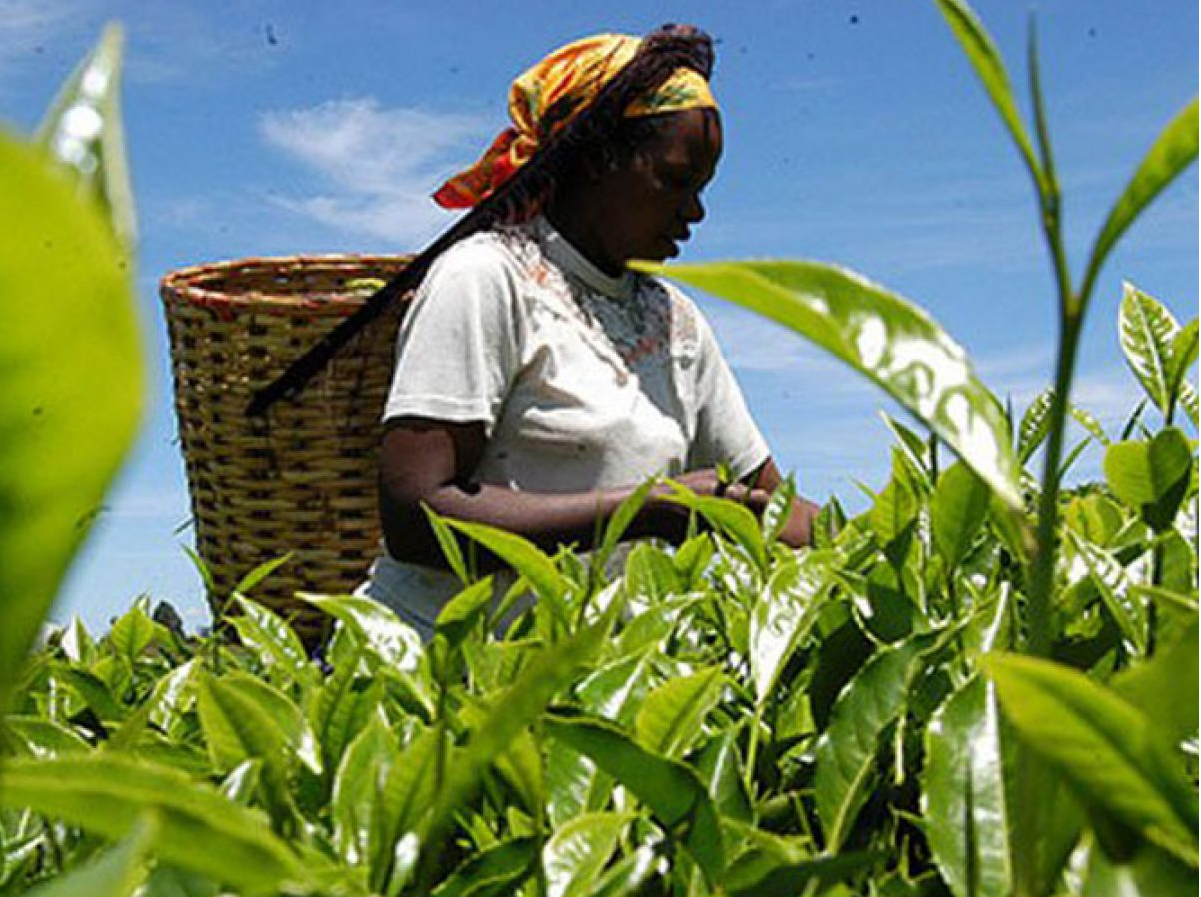A winding path of career shifts has punctuated the life of Anthony Kibe, who has climbed the hills of Silicon Valley, navigated the contours of consultancy and now finds himself in asset financing.
The Chair of the Leasing Association of Kenya (LAK) describes himself as an avid reader, and books would certainly need to be written on the exuding passion that oozes whenever he talks about leasing.
The University of California graduate who ranks Peter Drucker’s Managing People, Sun Tzu’s Art of War and the Bible among his top reads, says leasing is one of the most efficient, yet highly untapped ways to grow an economy.
But what is leasing?
Leasing is a mode of asset finance where one party, called the lessor, enters a contractual agreement so that a lesee is given access and use of property or equipment owned by the lessor. The agreement determines the obligations and liabilities that fall on each party, such as regular payments made to the lessor (e.g. rent).
Basically put, the lessor is the person offering the property or equipment while the lessee is the user of the property or equipment.
In leasing, the lesee is not necessarily looking to own the asset in the end, only ‘renting’ from the lessor for a period of time and as an asset finance mechanism differs from hire purchase, where the end goal is for the asset to transfer in ownership from one party to the other.
Prior to the start of the year, leases were categorised as operating leases and finance leases, or ‘wet’ leases and ‘dry’ leases respectively, Mr. Kibe says.
“A wet lease has the full package; maintenance, insurance, perhaps tracking services. Basically, value additions depending on the nature of the asset. A dry lease meanwhile is purely finance with maybe a few value addition,” he says.
[Read: Engineer who built real estate company using HELB loan]
However, changes in the International Financial Reporting Standards (IFRS) now render leases practically wet leases, with one major change requiring all leases to be recorded on the balance sheet of the book of accounts. Mr. Kibe explains that before this, dry leases were usually off balance sheet assets, which sometimes meant accountants became “creative.”
“The main reason for this change was factors such as the financial crisis of 2008, where accountants became creative with off balance sheets transactions. The Airline industry was very notorious for this as airlines don’t own planes — they are leased. So as an investor, you probably didn’t know what assets weren’t on the balance sheet.”
The change therefore reflects what Anthony Kibe describes as a need for investors to seek more transparency.
Leasing Association of Kenya (LAK)
In 2003, an umbrella association of asset finance and leasing practitioners was registered in Kenya. Originally under the name East, Central & Southern Africa Leasing Association, the group changed its name in 2007 to Leasing Association of Kenya (LAK) so as to better reflect its membership.
Anthony Kibe is currently the LAK Chair and has been at the helm for the past two years. His journey though to the apex of Kenya’s umbrella leasing group was however not straightforward.
Having studied for his undergraduate in the USA at the University of California, Mr Kibe ventured into the medical device pharmaceutical industry at Silicon Valley for around seven years.
“Silicon Valley is known predominantly for its software and computers, the Apples and the Facebooks. But there are other tech sectors that are big,” he says.
From product developement to manufacturing, the rugby fan found himself in regulatory compliance and quality assurance and it is “through that, that’s how I ended up getting a Masters in Quality Assurance” from the San Jose University.

Ready for a change and with relocation to Kenya on his mind, Anthony Kibe returned to the country in 2004 where according to him, he experienced a complete career shift, moving from tech to consulting at PriceWaterhouse Coopers.
Four years later, Kibe joined Simba Corp where he ended up in asset finance, which with a academic background in finance wasn;t totally new but “as an industry experience though, it was totally new for me.”
As Simba was a member of LAK, Kibe says he applied himself into the umbrella group, joining the board and eventually was elected Chair two and a half years ago.
“When you think of asset finance, where do you really go to study asst finance?”
LAK Chair Anthony Kibe on the reason why the association provides capacity building for its members.
The autobiographies lover says the mandate of LAK which began as advocacy and lobbying, has recently shifted gears to include capacity building and engagement with fellow stakeholders as well as government in the bid to influence policy.
LAK is made up of banks, non-bank financiers, equipment dealers and service providers and currently has a membership of 44.
Mechanisation for efficient farming in Kenya
The LAK Chair sits on a taskforce commisioned by the Ministry of Agriculture to look at modalities of increasing the mechanization of agriculture from the current 22% to 35% by 2025.
Priority sectors include dairy, fisheries, grain storage and irrigation. and the task force, who’s mandate ends in March 2019, is exploring how to help improve access to financing for farmers to mechanize.
Anthony Kibe says many farmers in the country do not have access to equipment, making it inefficient especially when one considers that neighbouring countries such as Uganda and Tanzania are producing lots of food. In fact, it is even at times cheaper to buy and transport food from Kenya’s neighbours than it is getting produce directly from our farms.
[Read: Oddity of incompetent people getting ahead in life]
The taskforce, Kibe says, is looking into how this can be remedied and one of the resolutions could see an association set up to provide easier access to equipment by farmers.
“We have agreed in principle that going forward, we need to set up an Agricultural Equipment Dealers Association.”
Kibe says that the taskforce is also looking into accessing a Ksh10 billion letter of credit signed between Kenya and the government of India. Initially meant for trucks, the credit facility will be available through financiers — banks and non-banks — that are financing the farmers.
29% – agriculture’s contribution to Kenya’s GDP
75% – small scale farmers output
70% – employment, majority in rural areas
Whereas trucks are the priority for this line of credit, Kibe says other equipment such as milking equipment, fisheries equipment will also be considered. “Basically, it is what type of agriculture is a farmer doing and what do they need.”
Kibe also says that the aim will be to see how farmers can be aggregated so that farmers from one area can acquire equipment from one aggregator. This is because landholds for the largely small scale farmers in the country are small compared to the size and expense that could cause a burden to an individual farmer.
“We will thus be leasing the equipment to the aggregator who will provide a service to the farmer as and when the farmer requires,” Kibe says.
[See Also: One year on, has Kenya learned lessons of Cambridge Analytica scandal?]












1 Comment